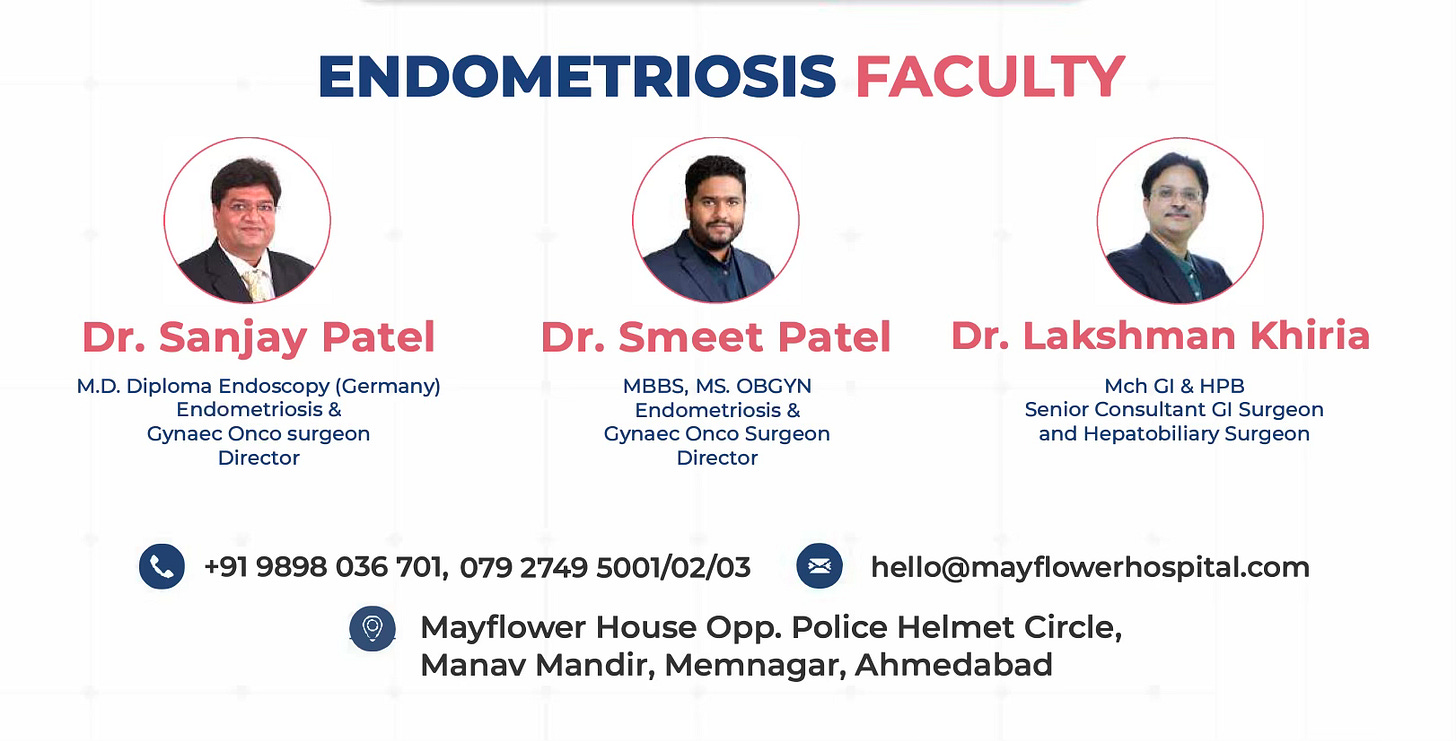Emotional Intelligence in Gynaecological Practice
How reading between the lines can help turn stressful moments in the OPD into moments of relief for your patients
In the heart of Ahmedabad, Dr. Ravina Patel's OPD, in Mayflower Women’s Hospital buzzed with the usual activity. Amid the routine, a new patient, Ayesha Khan, 29, (name changed) presented with chronic pelvic pain. As Ayesha entered, her posture was guarded, eyes avoiding contact, and hands clenched tightly. She murmured, "I'm fine," settling into the chair. But years of experience had taught Dr. Patel that such words often concealed deeper truths.
Recognizing the subtle cues—Ayesha's tense shoulders, the slight tremble in her voice—Dr. Patel leaned in slightly, softened her tone, and asked, "Can you tell me more about what's been bothering you?" This approach, rooted in emotional intelligence, is not merely about empathy; it's a clinical skill that enhances patient care.
The Science Behind Emotional Intelligence in Healthcare
Emotional intelligence (EI) in medical practice involves recognizing, understanding, and managing one's own emotions and those of others. In the context of gynecology, where patients often deal with sensitive and emotionally charged issues, EI becomes crucial.
Studies have shown that physicians adept at interpreting nonverbal cues—like body language and tone—can significantly improve patient satisfaction. A systematic review and meta-analysis found that greater clinician warmth and listening were associated with higher patient satisfaction .
Nonverbal Communication: The Silent Language
Nonverbal cues often speak louder than words. For instance, maintaining appropriate eye contact demonstrates attentiveness and respect. A calm tone, open posture, and nodding can convey empathy and understanding.
Dr. Patel's approach—attuned to both verbal and nonverbal signals—enabled her to recommend a comprehensive treatment plan for Ayesha, addressing not just the physical symptoms but also the emotional toll.
In India, cultural norms significantly influence patient comfort. Many women may avoid direct eye contact with male physicians or feel uncomfortable discussing intimate health issues. Being aware of and respecting these cultural nuances can help build trust and improve patient satisfaction.
Practical Steps for Gynecologists
Observe Nonverbal Cues: Pay attention to patients' body language, tone, and facial expressions.
Be Mindful of Your Own Nonverbal Signals: Maintain appropriate eye contact, use a calm tone, and ensure your body language conveys openness.
Cultivate Cultural Competence: Educate yourself about the cultural backgrounds of your patients to better understand their perspectives and comfort levels.
Engage in Active Listening: Allow patients to express their concerns fully without interruption.
Involve Patients in Decision-Making: Discuss treatment options openly and respect patients' preferences and values.
Further Reading
For those interested in enhancing their nonverbal communication skills, resources like Verywell Mind's guide on nonverbal communication offer valuable insights.
P.S.: Got feedback or a topic you’d love us to cover? Drop us a line at publications@mayflowerhospital.com.
CSEEMIG Course is Back — Have you booked your seats yet?
Mayflower’s record in endometriosis care speaks for itself – a recurrence rate of less than 2%, far below the global average of 20-40%. This consistency is no accident.
The institute opens its doors once again, offering an opportunity to witness the approach that has set this standard.
Observe Dr. Sanjay Patel, Dr Smeet Patel and the iconic Mayflower Endo Team perform live surgeries featuring advanced techniques like the Butterfly Peritonectomy and Rule of M.
Gain insight through case discussions, Q&A sessions, and shared experiences with peers.
Registration and Payment:
Endometriosis Weekly Update —
Disease in breach: Treating mucosal disease involvement on the colon
Thanks for reading Pollen by Mayflower! If you liked what you read and would like to read more of it, please subscribe and receive regular updates from Mayflower.
And if you think a friend would love to read this, feel free to share it with them too. We’d appreciate it :)









